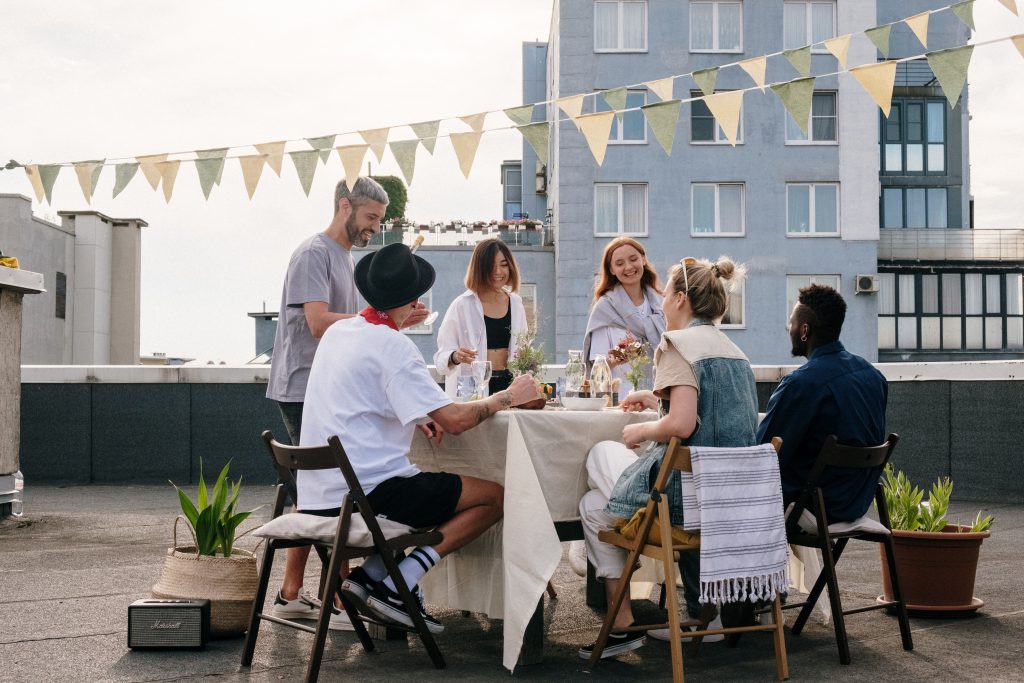By: Teacher Joseph Palomares
The weekend was a terrific topic for a conversation. Americans may ask you about your plans for the weekend starting on Thursday – even as early as Wednesday. You have probably heard questions like:
Possible Questions

- What are you doing on the weekend?
- What is going on with you on the weekend?
- Do you have big plans for the weekend?
And when you get back to work or school on Monday, what is the most common question you hear? How was your weekend? The weekend is a good topic for making small conversations. Especially if you do something fun over it, and you want to share it with people. However, if you did not do anything special during those days, this question may make you feel like you have nothing to say like you are about to kill the conversation. Do not worry; we understand. In this article, you’ll learn some responses when people ask, “How was your weekend?”
The Upcoming Weekend
When Wednesday rolls around, your colleagues might ask, “Do you have any plans for the weekend?”, Or a similar question. Your plans could be anything from watching a movie, going out of town, or even reading a new book.
“Yeah, I’m going to be watching the new Star Trek movie because I’m a big fan.“
Here’s a general response format: What you will do +“because”

A: Do you have any plans for the weekend?”
B: Yes, I’m going to bake a cake because it’s my best friend’s birthday. She loves chocolate, and I thought it would be a surprise!”
Here’s a general response format: What you will do +“because”+ other details
How was your weekend? (You did things!)
It’s Monday morning, and you expect about five people at work to all ask you:

- What did you do over the weekend?
- Did you have a good weekend?
- How was your weekend?
Okay, you feel pretty good about this question right now because you did things over the weekend. Perhaps you have traveled, tasted a wine, or worked on your English!
Again, it is best to respond to an activity you did over the weekend and share details about it. It could be a reason why you did the activity or if you enjoyed it.
A: How was your weekend?
B1: Good! I saw the new Star Trek movie. I dressed up as my favorite character and all! But the movie itself isn’t very pretty, and I feel like I’m sleeping. I don’t think I’m the only one!”
B2: Oh, “it’s great! I went shopping with my sister, and I got a new dress. which fits like a glove.”
(“Fits like a glove” is an expression that means fits well. )
Or if you want to be a little funny:
“I took a flight to London Friday night and had dinner with Prince Harry and Meghan Markle. Yes, I saw their baby, and he was even cuter in person. They offered to take me to Pamplona for the bull run. Unfortunately, I had to decline their invitation because I was already engaged in opera with Ryan Reynolds. However, how was your weekend? “
Honestly, it doesn’t matter what you say in response. The important thing is to make an effort to participate in the English conversation. It shows that “you’re playing” small talk. This is important if you want to create a positive impression of yourself to other people.How was your weekend (You did nothing …) Or, Monday morning and… seems like twice as many people ask you “How was your weekend?”Yes, you’re sure at least 10 people asked you, but you didn’t do anything over the weekend. You feel like a lazy, boring, someone. Don’t worry – you’re still your charming self! You can still respond in a friendly way even if you have done nothing over the weekend.

But first – here’s a tip: it’s best not to respond this way:
- I just stayed home.
- I’ve done nothing
- or simply, “Nothing,” and no extra detail.
This is one of the biggest mistakes I see students make when I ask them “How was your weekend“Oh, I didn’t do anything” and then stopped talking, so they didn’t seem to want to talk to me! If you wanted to engage in small talk, we would need a more pleasant response. The key here is to show enthusiasm when making small conversations, even if you did nothing special.
